What is Public Interest Tech?

Transcript
[A medley of diverse tech fellows and tech inequality experts from all over the world.]
Matt Mitchell: Hi. I’m Matt, and I’m a hacker.
Sid Rao: My superpower is to help you protect your digital privacy.
Eireann Leverett: As a technologist, you don’t always have to work to defend the powerful, to defend the companies, to defend the traditional bases of power and influence in the world.
[Animation of a computer appears on screen. Hands type: “Since 2015, the Ford Foundation and the Mozilla Foundation have provided fellowships to technology experts to work with organizations advancing social justice”.]
Etienne Maynier: Because there is surveillance everywhere, because there is exclusion of a lot of people, because there is a strong inequality to how we access and understand technology, it won’t improve our society if we don’t fight for a better society with technology.
Berhan Taye Gemeda: I came into this fellowship and tried to understand what does it mean to be a technologist in a social justice space, who are the communities that we’re trying to serve, and how can we best serve them?
Sid Rao: As a public interest technologist, we have to bridge the gap between what technologists are trying to build and what social scientists are trying to solve.
Jennifer Helsby: I worked on a technology project called SecureDrop, which is an anonymous whistle-blowing platform. It’s a critical tool for journalists, just like an anonymous tip line.
Sid Rao: I built a tool which anyone can use to see how their Internet service providers can see what they’re doing, and how they can build a digital persona.
Matt Mitchell: It’s important that people know that it’s not a matter of if you will be hacked as an organization, it’s a matter of when. Which is why, as an organization, you need to have an incident response plan. “When this happens, we do this, and then if this happens, we bring it back down a step.”
Eireann Leverett: Even if you’re not a technologist, you should have opinions about how technology is used in society and has magnifying bias.
Steffania Paolo Costa Di Albanez (in Portuguese): The way in which technologies are being developed—they are being developed by default with preconceived biased algorithms.
[Animation of a person at a computer. A thought bubble appears asking the question, “Can computers be racist?”.]
Jennifer Helsby: In the future, I hope that the field of public interest technology can be seen on par with going to Google or Facebook or another tech giant.
Matt Mitchell: There are way too few of us doing social good work. It’s something that we need to develop and raise up.
[Join Us. Apply Now. Foundation dot mozilla dot org forward slash fellowships]
Accessibility Statement
- All videos produced by the Ford Foundation since 2020 include captions and downloadable transcripts. For videos where visuals require additional understanding, we offer audio-described versions.
- We are continuing to make videos produced prior to 2020 accessible.
- Videos from third-party sources (those not produced by the Ford Foundation) may not have captions, accessible transcripts, or audio descriptions.
- To improve accessibility beyond our site, we’ve created a free video accessibility WordPress plug-in.
What does it mean to be a technologist in a social justice space? Who benefits from tech and who is left behind? How can we ensure the internet works for the benefit of all and not just a few? These are questions that public interest technologists seek to address in their work.
Public interest technologists aim to bridge the gap between what technologies are trying to build and what issues social scientists are trying to solve.
Technology can make a positive difference in our world. But as it rapidly grows and changes our lives, opening up new avenues and showing us fresh possibilities, tech can also deepen existing inequalities. We believe in harnessing technology to serve justice and the public interest – and we see a wealth of opportunities to do so.
That’s why the Ford Foundation is working with a community of partners to develop a path for people to use their technology skills to change the world for the better: the professional field of public interest technology. Public interest technology is just what it sounds like – technology used to serve the public good. That can mean working to ensure that as the US census goes online for the first time, it is accessible and accurate. It can mean researching the negative side effects of using artificial intelligence in our criminal justice system, or even developing technical standards that emphasize privacy and free expression.
Learn more about the individuals and organizations growing the field of Public Interest Tech.
Other videos in this series
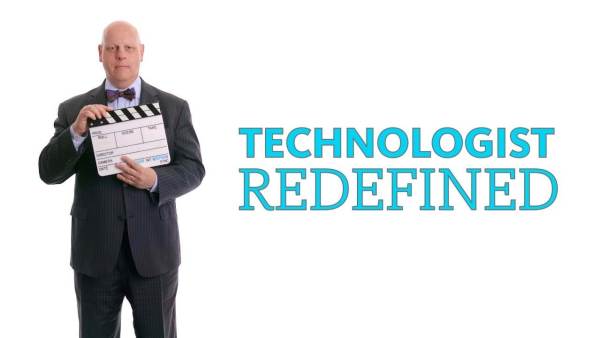
Danny Weitzner – Privacy and policy: a new school of thought. Public Interest Tech
Privacy is fundamental to our lives. Unanswered public policy questions raised by new technologies need to be addressed. Danny Weitzner, from the Massachusetts Institute of Technology (MIT), says as a society, we have to be directly engaged in these public interest technology questions to ensure new tools support human values.
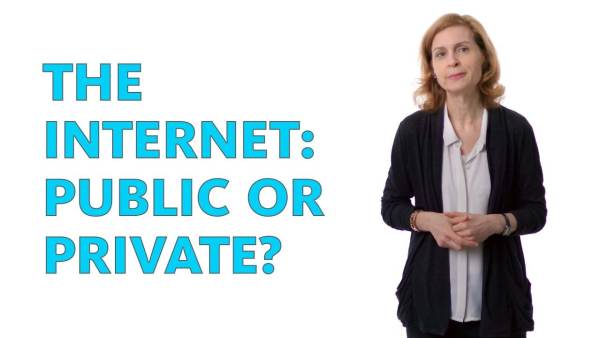
Susan Crawford – The internet: public or private? Public Interest Tech
Internet access is an indispensable factor when it comes to opportunities and resources needed for economic mobility. Public interest technologist Susan Crawford says government regulation is necessary to ensure provider incentives align with the public’s best interest and help create a better future for all.

Michelle Miller – A new age of advocacy. Public Interest Tech
Workers can use tools of the internet to push for better working conditions and outcomes, building a future of work that works for all. Michelle Miller, co-founder of coworker.org, focusses on building digital communities that put the power of numbers in the hands of the workforce.

Kade Crockford – Can computers discriminate? Spoiler alert: yes. Public Interest Tech
The age of automated decision making, through algorithms, can exacerbate inequalities in society. The ACLU’s Kate Crockford believes we need to bring technologists into the public interest fold to address this worrying issue. Lawyers like Crockford play an important part in ensuring digital technologies work for the benefit of all.

Joy Buolamwini – Fighting the “coded gaze:” How we make artificial intelligence benefit all. Public Interest Tech
The automation of how computers detect, classify, and identify faces can favor some races and genders over others and also deepen existing inequalities. Public interest technologist Joy Buolamwini is building tools to help researchers code in a more inclusive way.
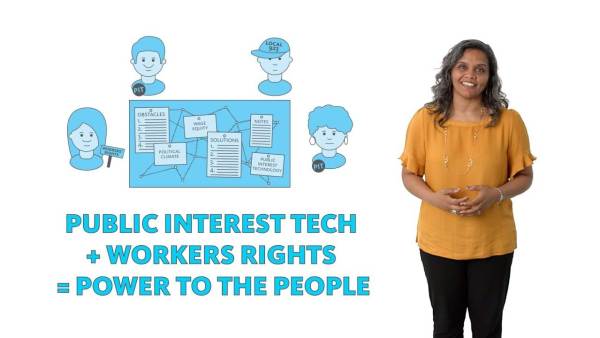
Sarita Gupta – The future of work(ers) rights! Public Interest Tech
Technology can help build a future of work that works for all. Sarita Gupta from Jobs with Justice explains how we can use technology to improve workers’ lives. Public interest technologists and social change leaders need to come together to design systems and tools that benefit all.
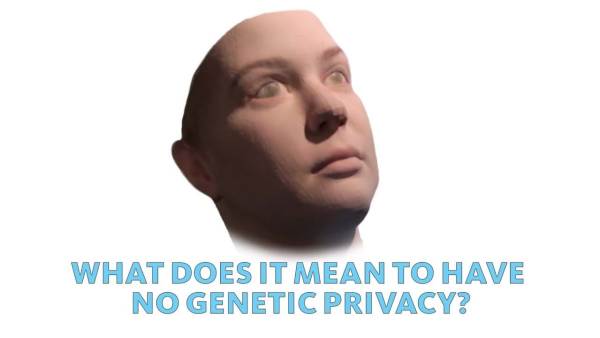
Heather Dewey-Hagborg – What can your genetic portrait tell the world? Public Interest Tech
Through her work, artist Heather Dewey-Hagborg asks deep questions about technology and how it functions and impacts society. She says we need to make the hidden world of biotechnology more visible to people, acknowledging its shortcomings and nuances to help ensure genetic privacy.
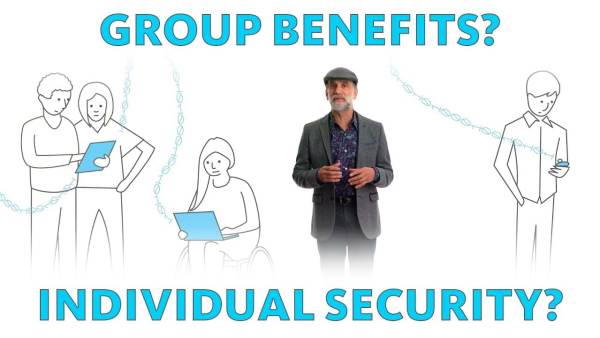
Bruce Schneier – How to survive in a hyperconnected world. Public Interest Tech
Cybersecurity expert Bruce Schneier says we need to find innovative ways to use surveillance data for the public good, while still maintaining our individual security. Tech decisions have policy ramifications, and policy decisions have tech ramifications—bridging the two worlds benefits everyone.
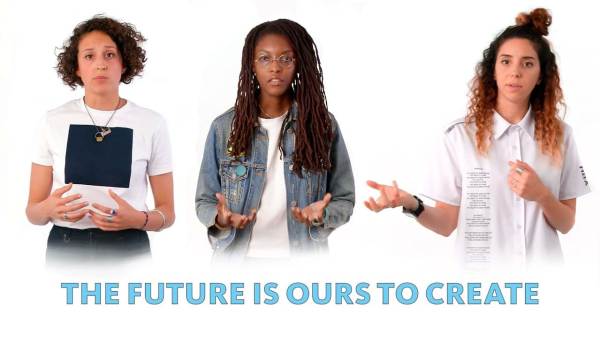
Hyphen-Labs – What does the future look like? Public Interest Tech
Technology can help us envision new ways of living. Artists can show us just what technology is capable of doing. But for tech to be truly inclusive, everyone needs to have a say in how it’s created. Artist collective Hyphen-Labs encourages experimenting with how we see the world.
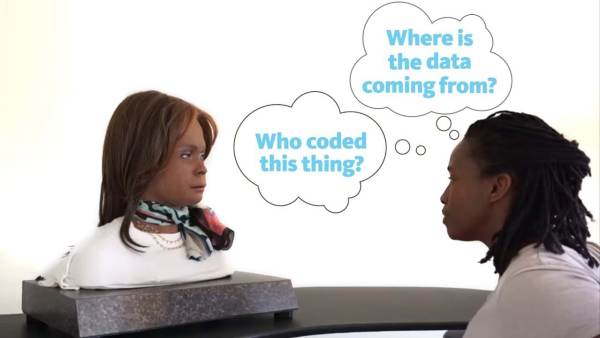
Stephanie Dinkins – Conversations with a robot. Public Interest Tech
There is implicit bias in artificial intelligence (AI). Artist Stephanie Dinkins wants data scientists and technologists to think about the ethical implications of AI and how better systems can be built for the future. Her work questions what machines are doing and why, so they can be more equitable and fair.
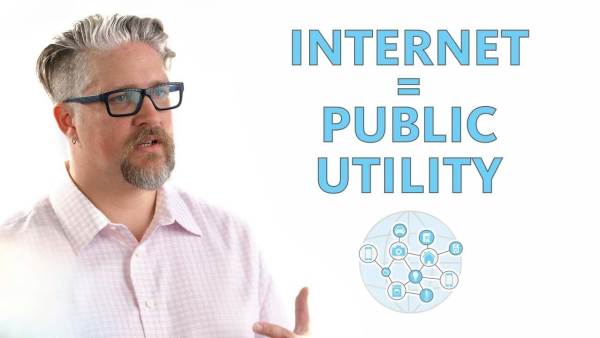
Éirann Leverett – Calling all hackers for good. Public Interest Tech
The internet is a shared safe space and should remain so. Éirann Leverett believes hacking can be used for public good. He maintains the issue of privacy and security should be seen as a consumer rights issue, and the internet should be treated as a public utility.
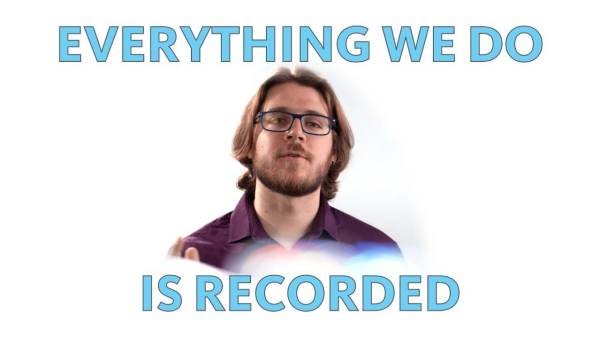
Etienne Maynier – Are these 5 tools in your organization’s digital security toolbox? Public Interest Tech
Fighting for a society that’s more equal means upholding the individual right to privacy. Etienne Maynier explains that digital surveillance is a pressing threat that feeds inequality. Protecting ourselves and our information is an important part of using technology to create a better society for all.
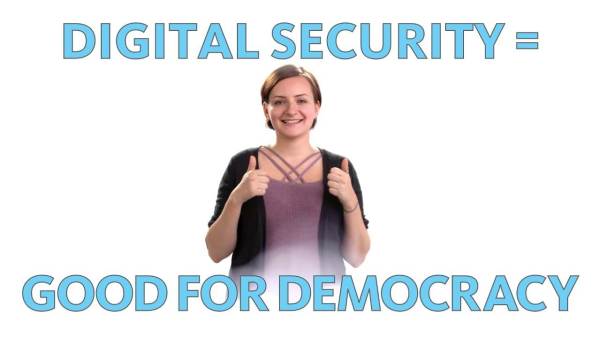
Jennifer Helsby – Digital security = good for democracy. Public Interest Tech
Having a free and open internet allows every person to read and speak freely online. Open Web Fellow Jennifer Helsby works to uphold freedom of the press and digital security, which are essential for journalists to maintain democracy.
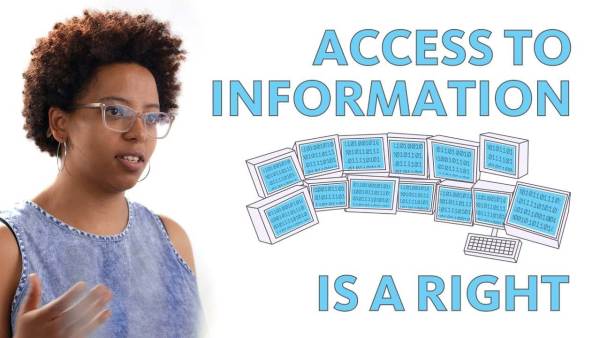
Berhan Taye Gemeda – Uncensored. Public Interest Tech
Censorship and online surveillance decrease opportunities for civic engagement. Social justice activist Berhan Taye Gemeda says access to the internet is a right, and she believes the internet should be governed by the public because it was created for the public. Accessible internet is essential for social change.
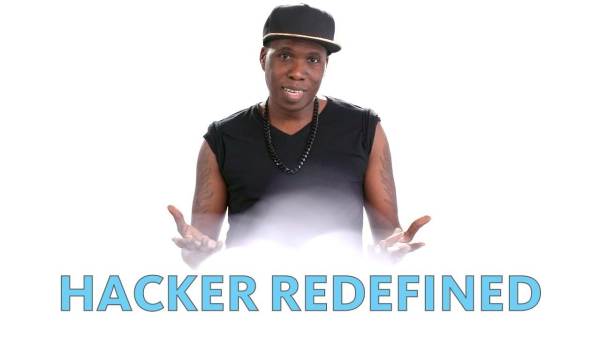
Matt Mitchell – I’m a hacker. For good. Public Interest Tech
Organizations need to be proactive in protecting themselves from digital threats. Hacker Matt Mitchell says it’s not a matter of if you will be hacked as an organization, it’s a matter of when. Having an understanding of these digital threats and planning before problems occur is vital.
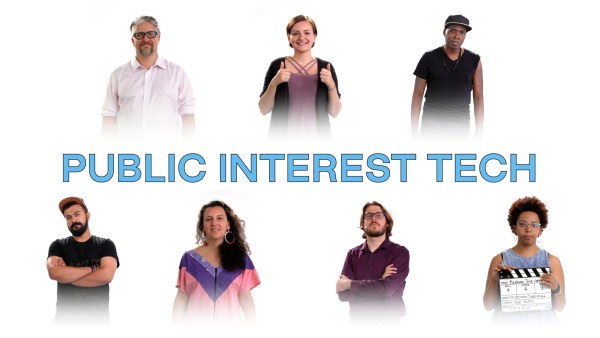
Meet the future of tech. For good. Public Interest Tech
Public interest technologists show us how tech can work for social good and help fight inequality. They work to bridge the gap between what technologies are trying to build and what social scientists are trying to solve.
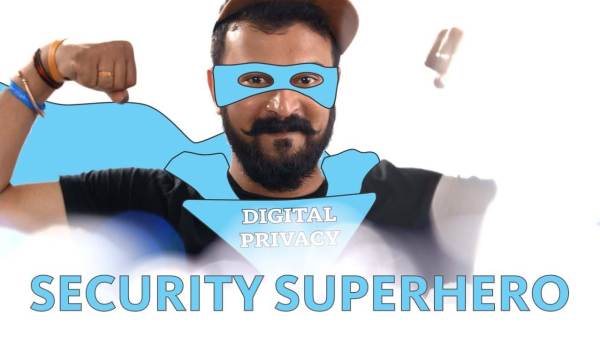
Sid Rao – My digital superpower. Public Interest Tech
Internet users don’t know how their metadata is being used or exploited for monetary or tracking purposes. Open Web Fellow Sid Rao aims to give people the tools to protect their digital privacy by knowing how their internet activities are being monitored.
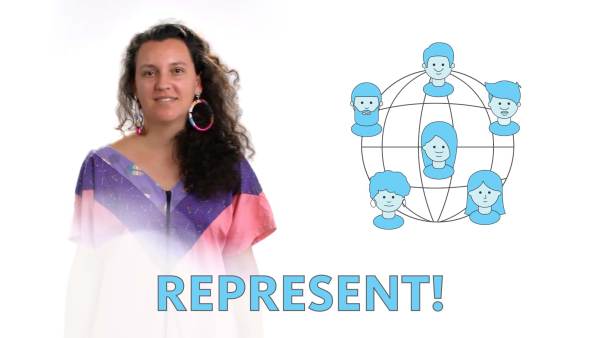
Steffania Paola Costa di Albanez – Who gets to make technology? Public Interest Tech
In the fight for equality, the way technology is developed should be a key issue. Open Web Fellow Steffania Paola Costa di Albanez says developers should reflect the diversity of those who use technology and represent a wide variety of user experiences, from women to Black women.